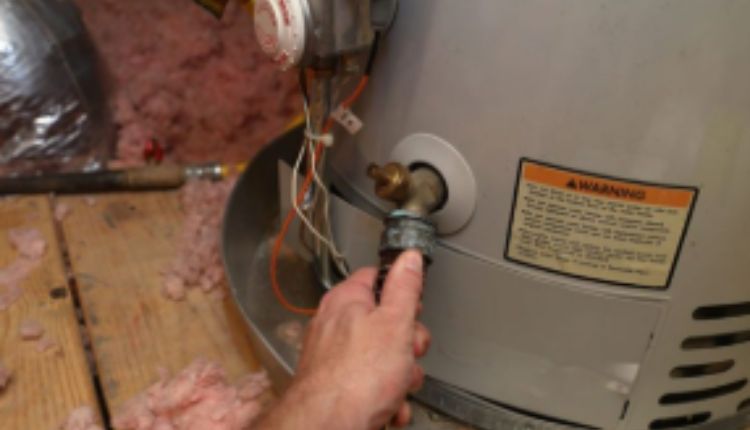Understanding Those Mysterious Sounds from Your Hot Water Tank
Have you heard strange popping sounds coming from your water heater? Don’t worry – you’re not alone. Many homeowners hear these noises and wonder if something is wrong. When your water heater is making a popping noise, it can be scary, especially if it starts suddenly.
The good news is that in most cases, these sounds don’t mean your water heater is about to break down completely. But they are telling you something important about what’s happening inside your water heater.
In this guide, we’ll explain why your water heater is making a popping noise, what these sounds mean, and how you can fix the problem. Your water heater keeps your family comfortable with hot showers and clean dishes. Learning how to take care of it can save you from cold showers and expensive emergency repairs.
What Causes That Popping Sound in Your Water Heater?
Sediment Buildup: The Main Problem
The most common reason your water heater is making a popping noise is sediment buildup. Sediment is just tiny bits of minerals that were in your water. These minerals, like calcium and magnesium, are common in “hard water” areas. As your water heater warms up the water, these minerals separate and fall to the bottom of your tank.
Over time, these minerals create a thick layer at the bottom of your tank. When water gets trapped under this layer and heats up, it turns to steam. This steam bubbles up through the sediment layer, making popping sounds – kind of like popcorn popping. If your water heater is making a popping noise, it’s telling you there’s too much sediment inside.
High Water Pressure
Sometimes, the popping noise isn’t from sediment at all. High water pressure in your home can also cause strange sounds in your water heater. When water pressure is too high, it can bang against the sides of your tank and pipes.
This often happens when someone turns off hot water suddenly in another part of your house. The water rushes back through the pipes and creates knocking or popping sounds. While it might sound like sediment popping, the cause is different and needs a different fix.
Why You Shouldn’t Ignore When Your Water Heater Is Making a Popping Noise
Higher Energy Bills
When sediment builds up in your water heater, it blocks the heat from easily reaching the water. Think of it like wearing a thick coat in summer – the heat can’t get through. This means your water heater must work harder and longer to heat your water, using more energy.
If your bills are getting higher while your water heater is making a popping noise, sediment is likely the problem. For most homes, water heating makes up about 18% of utility bills. A water heater with sediment can use 30% more energy than a clean one. That’s a lot of wasted money!
Shorter Water Heater Life
A water heater should last 8-12 years if you take care of it. But when your water heater is making a popping noise because of sediment, it might not last nearly that long. The extra work makes the tank overheat, which can damage it and cause leaks.
When sediment makes your water heater work harder, the metal tank expands and contracts more than it should. This stress can create cracks over time. If you fix the problem when you first notice your water heater making a popping noise, you can help it last longer and save money on an early replacement.
How to Fix a Water Heater That’s Making a Popping Noise
DIY Fix: Flush Your Water Heater
Good news! If your water heater is making a popping noise because of sediment, there’s an easy fix: flushing the tank. This removes the built-up sediment and helps your water heater run quietly again. Here’s how to do it:
Steps to Flush Your Water Heater:
- Turn off the power (for electric heaters) or set to “pilot” (for gas heaters)
- Turn off the cold water supply to the heater
- Connect a garden hose to the drain valve at the bottom
- Open a hot water faucet somewhere in your home
- Open the drain valve and let the tank empty
- Turn on the cold water supply briefly while the drain is open
- Keep flushing until the water runs clear
- Close everything up and restore power
Most homeowners should flush their water heater once a year. If you have hard water, you might need to do it every six months. This is especially important if your water heater is making a popping noise.
When to Call a Professional
Sometimes, a DIY flush isn’t enough. If your water heater is still making a popping noise after you’ve flushed it, you might need professional help. A plumber has special tools to remove tough sediment buildup. They can also check for any damage that might have happened.
For older water heaters that have been making popping noises for a long time, replacing the unit might be your best option. A professional plumber can tell you whether fixing or replacing makes more sense for your situation. They can also help you choose the right size unit for your family’s needs.
Preventing Future Water Heater Popping Noises
Water Softeners: A Long-Term Solution
If your water heater is making a popping noise due to hard water sediment, installing a water softener might be a wise investment. Water softeners remove the minerals that cause sediment buildup before the water enters your plumbing system. This not only protects your water heater but also prevents scale buildup in pipes, fixtures, and other appliances throughout your home.
Modern water softeners are more efficient and environmentally friendly than older models. While they represent an upfront investment, the long-term savings in appliance longevity, energy efficiency, and maintenance costs often make them worthwhile, especially in areas with very hard water where your water heater frequently makes popping noises.
Regular Maintenance Schedule
Even with a water softener, establishing a regular maintenance schedule for your water heater is essential. Mark your calendar for annual flushing, and use that opportunity to also check the pressure relief valve, inspect for leaks, and verify that your temperature setting is appropriate (typically 120°F is recommended for most households).
Taking just a couple of hours once a year for this simple maintenance can prevent your water heater from making a popping noise in the future. It also gives you a chance to spot any developing issues before they become serious problems. Remember, the cost of prevention is almost always less than the cost of repairs or replacement.
When to Consider Upgrading Your Water Heater
Signs It’s Time for a New Unit
If your water heater is making a popping noise despite regular maintenance and it’s approaching the end of its expected lifespan (typically 8-12 years), it might be time to consider a replacement. Other signs that replacement might be the better option include:
- Rusty water coming from your hot water taps
- Visible rust or corrosion on the tank itself
- Water pooling around the base of the heater
- Increasingly inefficient heating (running out of hot water faster)
- Frequent need for repairs
When shopping for a new water heater, consider models with features specifically designed to combat sediment, such as self-cleaning systems that reduce sediment buildup or models with larger heating elements positioned higher in the tank to avoid direct contact with sediment.
Modern Alternatives to Consider
If your current water heater is making a popping noise and you’re exploring replacement options, you might want to consider alternatives to the traditional tank-style water heater. Tankless water heaters heat water on demand rather than storing hot water, which eliminates the sediment buildup issue entirely. While they typically cost more upfront, their longer lifespan (up to 20 years) and energy savings can make them cost-effective in the long run.
Heat pump water heaters are another energy-efficient option to consider. They use electricity to move heat from the air to the water rather than generating heat directly, making them up to three times more energy-efficient than conventional electric water heaters. This technology can be especially beneficial if you’re concerned about the energy costs associated with a water heater that’s making a popping noise due to inefficiency.
Conclusion: Taking Action When Your Water Heater Is Making a Popping Noise
When your water heater is making a popping noise, it’s giving you an important warning that shouldn’t be ignored. In most cases, this sound indicates sediment buildup that’s reducing your water heater’s efficiency and potentially shortening its lifespan. The good news is that addressing this issue is relatively straightforward, whether through DIY flushing or professional plumber assistance.
Regular maintenance is key to preventing your water heater from making a popping noise in the future. By establishing a yearly flushing routine and considering water treatment options if you have hard water, you can extend the life of your water heater and ensure it operates efficiently. And when the time does come for replacement, understanding your options will help you make an informed decision that best suits your household’s needs and budget.
Remember, a little attention to your water heater today can prevent bigger problems—and bigger expenses—tomorrow. So if you hear your water heater making a popping noise, don’t just turn up the TV to drown it out. Take it as a call to action for some simple maintenance that will keep your hot water flowing reliably for years to come.






